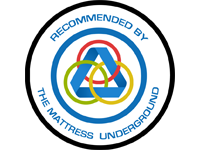Sleep Apnea: An Often Hidden & Dangerous Condition
on Jun 03, 2019
For many of those who suffer, sleep apnea is a hidden condition. People might go for years, or even decades, before officially being diagnosed with this condition.
And ignoring this condition doesn't come without its consequences. According to Johns Hopkins Medicine, uncontrolled sleep apnea could be a cause of habitual distracted behavior, mood swings, and loss of productivity. Studies have also shown a link between sleep apnea and a host of dangerous, even life-threatening problems, such as diabetes, strokes, and even heart attacks.
So what is sleep apnea? How can it be diagnosed? And most importantly, what can be done to treat it?
The Root of the Problem
According to the National Sleep Foundation, sleep apnea is a condition in which breathing is interrupted for short durations throughout sleep. The interruption is brief but significant: lasting for at least ten seconds.
The condition is also called "obstructive sleep apnea" because breathing is obstructed, where the muscles located in the back of the throat/upper airway "fail" and do not allow for a normal breathing pattern.
(Note: Some may be afflicted with a different variant of the condition - "central sleep apnea" - in which the brain fails to control the breathing muscles properly, during sleep.)
Evidence of the Problem
As discussed briefly, sleep apnea may result in feeling distracted during the day, mood swings, and more... so if you're experiencing some of those issues, you might not want to rule out this condition. You may also find more obvious evidence if you sleep with a bed partner, or if you record yourself while you're sleeping; those with sleep apnea may often snore or even make frightening "choking sounds" as they struggle to take in air.
Sufferers of sleep apnea may wake up with a headache, from an insufficient nightly air intake; or they may immediately need water, as their mouths might be incredibly dry.
Some people who suffer from sleep apnea may find it very difficult to stay awake during the day - resorting to naps or quick "shut-eye" sessions to restore some semblance of wakefulness.
Diagnosing the Problem
You never want to self-diagnose sleep apnea; your nightly breathing problems, snoring, or dry mouth might have a different cause. But if you suspect you might have sleep apnea, we urge you to see a doctor. You may need to engage in a sleep study in which measurements are taken throughout the night in a sleep study facility.
Cases of sleep apnea can range from mild to severe, as diagnosed by a doctor, and are based on the severity and number of breathing pauses you experience throughout sleep.
Treating the Problem
This is not a problem you want to treat on your own. As discussed earlier, sleep apnea can lead to chronic and/or dangerous consequences, including diabetes, stroke, and even cardiac issues.
Many people diagnosed with sleep apnea are prescribed a CPAP machine, which is a "continuous positive airway pressure" machine. Not only can this machine improve sleep, but it can also reduce the risk potential for other chronic illnesses. People using CPAP machines frequently find themselves needing fewer naps or rest periods throughout the day.
There are three types of CPAP machines that doctors typically recommend to their patients:
- Nasal CPAP mask: This covers the nose from the upper lip area to the bridge, and works well for those who move around in their sleep. It doesn't work well for people who breathe through their mouth.
- Nasal Pillows: These work well for people who want minimal facial coverage, as they are less restrictive.
- Full Face CPAP machines: These are more restrictive but work well for mouth-breathers. They also work well for users who may sleep on their back.
It's important not to mess around with your sleep; if you think you might have sleep apnea, contact your doctor.
← Older Post Newer Post →







Comments